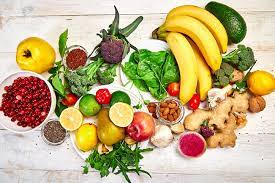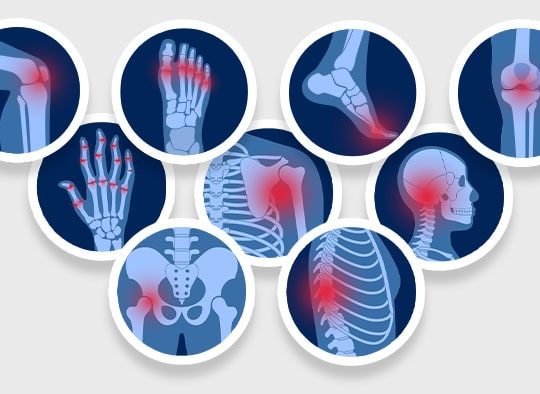Have you ever wondered if you’re getting all the vitamins and minerals your body needs for optimum health? As someone who has always prioritized their well-being, I hit a point in my life where I realized I needed to understand these essentials better. Embarking on a journey to educate myself about the vitamins and minerals our bodies need, I discovered a world of fascinating information that I can’t wait to share with you today.

1. Vitamin A: The Key to Healthy Vision and Immune System Function
Let’s start with vitamin A, a crucial nutrient for maintaining healthy vision, promoting a robust immune system, and supporting cell growth. As someone who spends hours in front of screens every day, I became increasingly concerned about my eye health. Learning about vitamin A’s importance made me reconsider my diet choices.
To incorporate this essential vitamin into your diet, look for foods like carrots, sweet potatoes, spinach, and kale. These vibrant and nutrient-rich vegetables are not only delicious but also excellent sources of vitamin A.
2. Vitamin C: A Powerful Antioxidant for a Strong Immune System
We often associate vitamin C with preventing the common cold, but its benefits extend far beyond that. This vitamin is a potent antioxidant that protects our cells from damage, boosts collagen production for healthy skin, and aids in wound healing. These discoveries motivated me to increase my intake of vitamin C-rich foods.
Citrus fruits like oranges, lemons, and grapefruits are renowned for their vitamin C content. Additionally, strawberries, kiwis, and bell peppers are fantastic sources of this essential nutrient. Incorporating these fruits and vegetables into your daily meals or enjoying them as snacks will give your immune system a well-deserved boost.
3. Vitamin D: The Sunshine Vitamin for Strong Bones
Have you ever noticed how much better you feel after spending time in the sun? That’s because sunlight synthesizes vitamin D in our bodies, a crucial vitamin for calcium absorption and strong bones. As someone who spends considerable time indoors, I was intrigued by the potential impact of vitamin D deficiency on my bone health.
While sunlight is an excellent source of vitamin D, it can be challenging to get enough, especially during winter months or if you live in a region with limited sunlight. Incorporating vitamin D-rich foods like fatty fish (salmon, mackerel), fortified dairy products, and egg yolks into your diet can help you meet the recommended daily intake.
4. Iron: Fueling Energy Levels and Enhancing Brain Function
Feeling tired and fatigued even though you’ve gotten enough sleep? Iron deficiency could be the culprit. Iron is an essential mineral that aids in the production of hemoglobin, a protein responsible for transporting oxygen throughout our body. Without sufficient iron, we can experience fatigue, weakness, and even impaired cognitive function.
To increase iron intake, include foods such as lean meats, legumes, spinach, and fortified cereals in your diet. Combining iron-rich foods with vitamin C sources can enhance iron absorption, so consider adding some citrus fruits to your meals.
5. Calcium: Building Strong Bones and Teeth
We often associate calcium with bone health, but did you know it also plays a crucial role in muscle function and nerve transmission? As someone who values physical fitness, I realized the importance of maintaining optimal calcium levels in my body.
Dairy products like milk, yogurt, and cheese are excellent sources of calcium, but they may not suit everyone’s dietary needs or preferences. Luckily, there are many non-dairy sources available, including leafy green vegetables like broccoli and kale, fortified plant-based milk alternatives, and calcium-fortified tofu.
6. Magnesium: The Mighty Mineral for Overall Well-being
Magnesium is often referred to as the “mighty mineral” due to its involvement in over 300 biochemical reactions in our bodies. It plays a crucial role in maintaining normal nerve and muscle function, promoting a healthy immune system, and regulating blood pressure. Recognizing these benefits, I became more aware of the need to incorporate magnesium into my daily routine.
Foods like nuts (almonds, cashews), seeds, whole grains, and leafy green vegetables like spinach are fantastic sources of magnesium. Additionally, dark chocolate lovers will rejoice knowing that it, too, contains this essential mineral.
7. B Vitamins: Boosting Energy Levels and Supporting Brain Function
The B vitamins, including B1 (thiamine), B2 (riboflavin), B3 (niacin), B5 (pantothenic acid), B6 (pyridoxine), B7 (biotin), B9 (folate), and B12 (cobalamin), are a group of vitamins that play a crucial role in energy production, brain function, and cell metabolism. Understanding their importance made me reconsider my dietary choices to ensure I was obtaining enough B vitamins.
Including foods such as whole grains, legumes, poultry, eggs, leafy green vegetables, and fortified cereals in your diet can help you meet your B vitamin requirements. If you’re following a plant-based diet, be mindful of obtaining adequate B12, which is primarily found in animal-based foods.
Incorporating these essential vitamins and minerals into your diet is crucial for optimal health. By being mindful of what you eat and making informed choices, you can ensure that your body receives all the necessary nutrients it needs to thrive. Remember, it’s the little steps we take each day that make a significant impact on our overall well-being.










